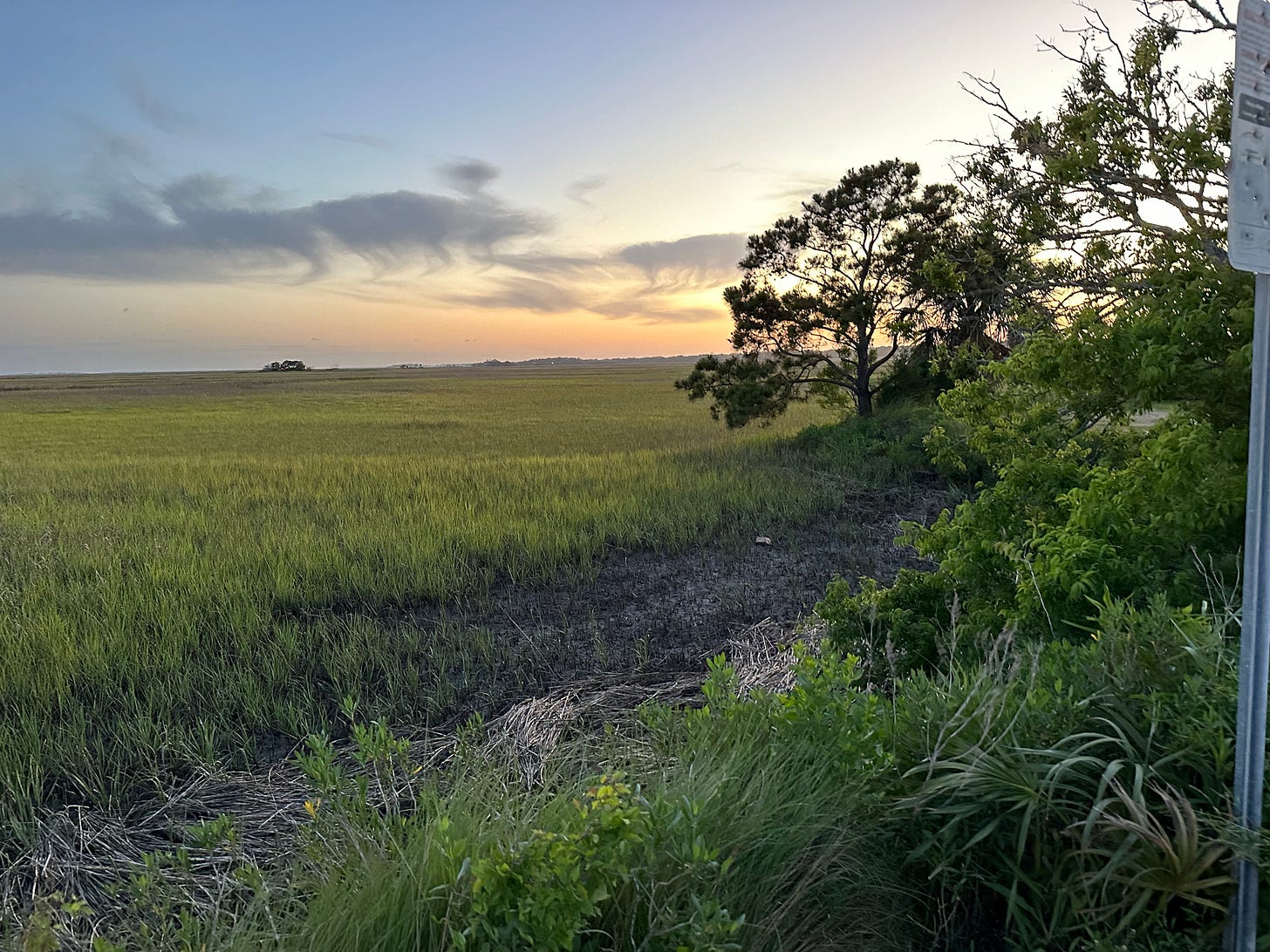Loquacious Ramblings
And other Truthin's
Gibbes McDowell, third-generation Beaufortonian, is a true sportsman and genuine son of the Lowcountry soil. He’s been shot, drowned, run over, struck by lightning, snake bit, and thrown under the bus by a dirty-legged woman. Earlier this spring, I risked life and limb and agreed to take a boat ride with him through the treacherous waters of Trenchards Inlet to some hallowed ground, a place where only the good times are invited to go.
Teetering on the edge of South Carolina’s saltwater rivers are miles of ramshackle creekbank fish camps where men get to be boys all over again.
There, you leave behind time and responsibilities to watch waves come ashore on barren beaches, and stars dance in the darkness of the sky.
Rustic cottages on remote strips of shoreline are where stars twinkle in the midnight sky, clouds pile high in endless formations, and the sun shines brilliantly over the great salt marsh. In most cases, there are no paved roads around the fish camps - no electricity, no bars, or grocery stores. What they do provide is tranquility on creeks and rivers near the edge of the great Atlantic. As the sun begins to rise, the only sounds are that of Brown pelicans and Oystercatchers flying overhead and waves hitting the side of the dock.
Johnson Creek Fish Camp is situated on a small hammock, located just west of Harbor Island and behind Hunting Island State Park on the side creek off its namesake, Johnson Creek. Each new day is ushered in with the cackling of marsh hens on the creekbank. Growing up blessed Gibbes with a curious journey of life experiences, never being far from his father’s side, an avid outdoorsman and local legend.
Here’s how Gibbes tells it, in his own words.
It’s 6 a.m. on a cool October Friday afternoon in the Lowcountry. The setting sun is about to surrender the day with its final pink and orange painting of the western skyline. A fall moon rising in the east and punching a 9-foot tide has the marsh hens cackling as I back my boat down the ramp at Machete Landing. Deep draughts of cool salty air quicken my anticipation of the weekend to come.
The outboard motor fires on the first pull and all my problems are suspended on the boat ramp behind me. The world will just have to wait until I can get back. I’m goin’ down the river to a fish camp to meet lifelong friends for a weekend of fishing, cooking, and storytelling around the campfire. It’s a place where we all have nicknames. The stories fly fast, getting better and better with the retelling. “Do you remember that guy who did two back flips off the dock into the pluff mud and never spilled his beer?” “Or how ‘bout the old timer who watered down the oyster gravy with naphtha instead of water?” Damn near killed us all. These are the best days of our lives. Who says you can never go home again?
This day, Trenchards Inlet is rough. I can clearly hear my father’s voice tutoring me as a youngster learning how to handle a boat. “In rough water, you have to feather the throttle to keep the boat at just the right speed so you don’t submarine the bow or take water over the stern. Make your decisions fast, and don’t hesitate. Trenchards can kill you.”
The 30-minute ride is comfortably cold, reminding me of many such trips with my dad and the fish camps we shared. 40 years later, his spirit is still with me at every campfire or oyster roast. Whether fishing the surf for redfish or sneaking up on an island duck pond, his teachings have stood me well. My father’s experiences pass through my own, like a fine seasoning, on to my son, who, with his friends, is building his own fish camp resume.
Coming around the last bed in the creek, I can smell it first: the siren smell of an oak fire and then barbeque on the grill. Distant figures dance in the beckoning glow. When my boat slides up against the dock, a friend and ceremonial Budweiser step out of the darkness to welcome me to the camp. The warmth of the open fire brings me into my circle of friends.
“I have made it. I am on hallowed ground. I’m ‘down the river.”


